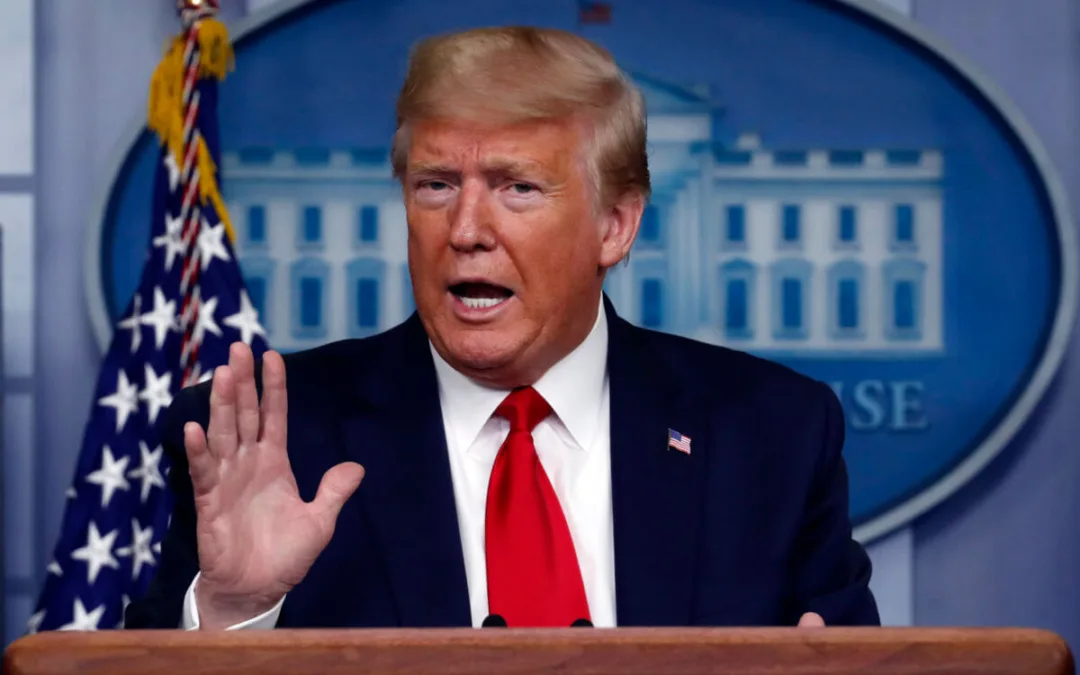
Many lawmakers now calling for additional CDC funds to address the coronavirus outbreak voted in 2017 to repeal Obamacare, which would have cut hundreds of millions from the agency’s budget to fight public health crises.
Several Republican senators facing tough reelection races are now clamoring for more federal funds to deal with the new coronavirus outbreak.
But just a few years ago, those same lawmakers voted to repeal Obamacare, which would have slashed $1 billion in funds for the CDC’s Prevention and Public Health Fund, including hundreds of millions set aside “for detecting and responding to infectious diseases and other public health threats.”
Last week, Sen. Thom Tillis (R-NC) said that $2.5 billion proposed by the Trump administration to deal with the coronavirus outbreak “may just be a down payment.”
Earlier in the month, Sen. Cory Gardner (R-CO) wrote a letter to congressional appropriators requesting “sufficient funding for both current and potential future efforts” to deal with outbreaks.
In response to questions about the coronavirus outbreak, Sen. Joni Ernst (R-IA) bragged on Friday about the size of the CDC budget, saying Congress “actually increased Centers for Disease Control and Prevention and National Institutes of Health funding over the past number of years.”
Sen. Martha McSally (R-AZ) went so far as to ask the CDC to reimburse states and cities for efforts to deal with the coronavirus outbreak.
Yet all four of these senators, along with most Republicans in the Senate and Congress, voted in 2017 to take $1 billion away from the CDC’s Prevention and Public Health Fund when they voted to repeal Obamacare.
That same year, the Association of State and Territorial Health Officials warned of “dire consequences” if the fund were to be eliminated, saying core public health programs would cease to exist if the Republican-backed bill became law.
At the time, the senators defended their votes to repeal Obamacare and eliminate funds for the Prevention and Public Health Fund, with Ernst saying Obamacare was “not sustainable,” McSally calling it the “wrong approach,” Gardner calling it “simply unacceptable,” and Tillis claiming his vote was part of an “obligation” to fix a broken health care system.
Ernst, Tillis, and Gardner were senators when they voted to do away with the Prevention and Public Health Fund, and McSally was a member of the House. Both the House and Senate versions of the repeal tried to eliminate the fund.
The House-backed bill passed by a 217-213 vote, with support from only Republicans. The repeal bill failed in a 49-51 vote in the Senate, with all 49 votes in support of the repeal coming from Republicans. No Democrats in the House or Senate voted for the repeal.
All four of these senators face tight reelection races in their respective states.
Polls in North Carolina, Arizona, and Colorado show Democratic challengers leading Tillis, McSally, and Gardner, respectively. In December, Ernst held a 47% to 41% lead over her likely Democratic challenger, Theresa Greenfield.
Republicans currently hold a 53-47 majority in the Senate, meaning Democrats would need to flip at least four seats in order to gain control of the chamber. Democrats are also eyeing Maine, where Republican Sen. Susan Collins is seeking reelection, while Republicans hope to oust Sen. Doug Jones from his seat in Alabama.
On Sunday, the World Health Organization reported 87,137 confirmed cases of COVID-19, the disease caused by the new coronavirus.
In late February, the CDC issued a warning for communities to prepare for the spread of the outbreak. The warning came less than a day after Donald Trump claimed the outbreak was “under control.”
The Trump administration has tried to downplay concerns about the outbreak, despite the warnings from experts about the spread of the virus.
The new coronavirus causes respiratory illness, with symptoms that include fever, cough, and shortness of breath. The CDC recommends people avoid touching their eyes, nose, and mouth; avoid close contact with people who are sick; clean and disinfect frequently touched objects regularly; and wash hands regularly as the best preventive techniques, just as with any other flu.
Published with permission of The American Independent Foundation.
Politics

Teamsters and UPS Reach Tentative Deal to Avoid Strike, 340,000 Workers to Get Raises
The tentative deal represents a huge win for full- and part-time UPS Teamster workers, who would get significant pay raises and better working...



One Republican Senator Is Blocking 265 Military Promotions, Leaving the Marines Without a Confirmed Leader
Sen. Tommy Tuberville's decision means these military officers are not getting the pay raises they’re owed, cannot move their families to wherever...
Local News



Teamsters and UPS Reach Tentative Deal to Avoid Strike, 340,000 Workers to Get Raises
The tentative deal represents a huge win for full- and part-time UPS Teamster workers, who would get significant pay raises and better working...



One Republican Senator Is Blocking 265 Military Promotions, Leaving the Marines Without a Confirmed Leader
Sen. Tommy Tuberville's decision means these military officers are not getting the pay raises they’re owed, cannot move their families to wherever...




